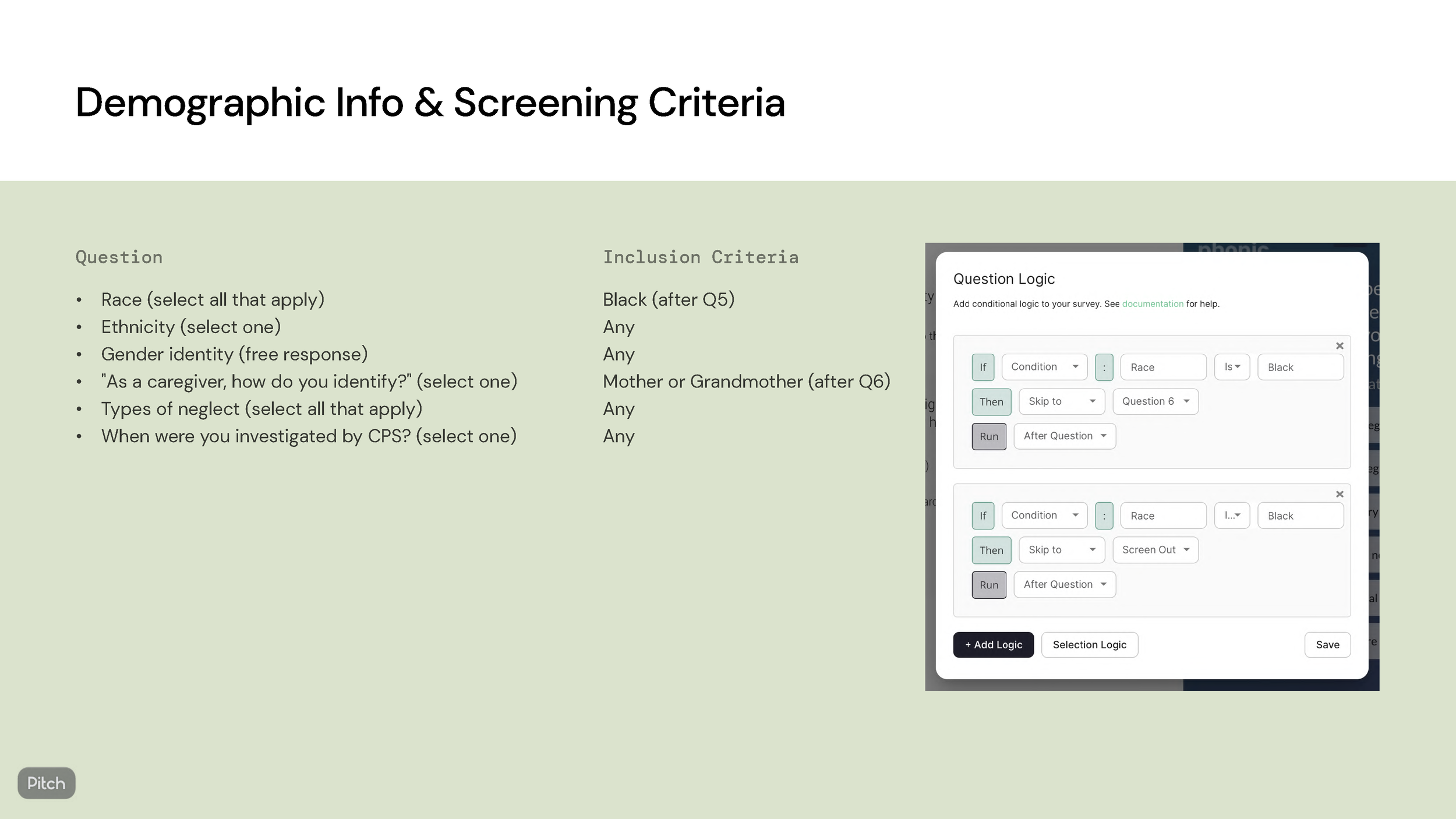
Digital Survey Design to successfully collect qualitative data from Black mothers negatively impacted by Child Protective Services.
Supporting Researchers at NYU, Silver School of Social Work
All project materials owned by Ker-twang.
Key Achievements
Designed a mobile-first, fully digital administered survey given the impact of COVID-19 on in person assessments for a researcher at NYU to generate high assessment completion rates (>80%) for Black mothers negatively impacted by Child Protective Services.
Innovation solutions from a social justice perspective.
NYU’s researchers sought out effective survey design to examine the ways in which Black mothers understand behaviors that contribute to child neglect. The findings about parental decision-making processes that result in neglect will inform future efforts to prevent child neglect and help address the substantial racial/ethnic disparities that characterize neglect cases.
The Challenge
CPS surveillance can be oppressive and stigmatizing. For this reason it is difficult to establish trust from users that have been institutionalized which can inhibit a researcher’s ability to effectively identify cognitions and emotions underlying parental behaviors related to supervisory and physical neglect. It is even harder to do that digitally due the impact of COVID-19 on in-person assessments.
Our Goal: Design an effective, confidential, user-friendly and fully-mobile digital assessment that would generate high completion rates (>80%).
What we did
Conducted qualitative research with mothers involved with CPS and social workers to learn about contextual influences and to conceptualize and operationalize key behaviors related to supervisory and physical child neglect.
Tested and piloted several iterations of design concepts with users that would generate meaningful data to inspire change.
Ongoing qualitative data analysis and design concept iteration. Key constraints included low participant reading levels, secure data storage, participant privacy, and the difficulty of reaching and incentivising participants to complete follow up assessments.



